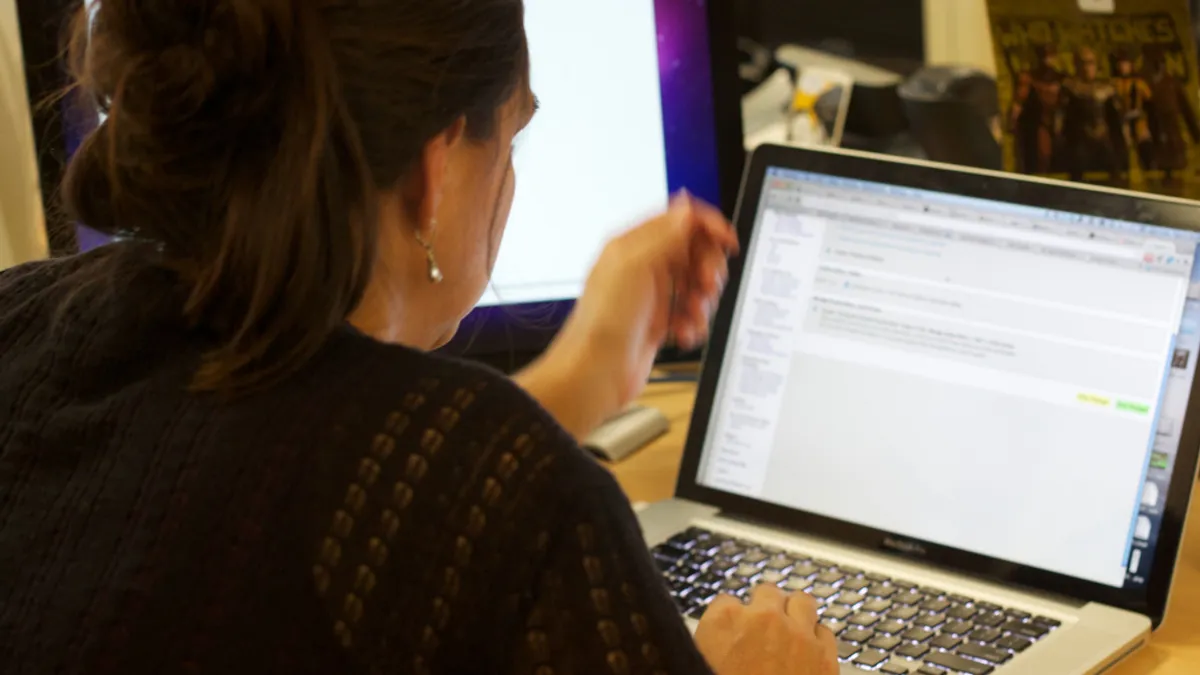Dive Brief:
- A number of educators have reported widespread copyright infringement of their own work and of commercially-produced educational materials on the site Teachers Pay Teachers, an online marketplace that allows teachers to earn money by selling lesson plans and curriculum materials, Education Week reports.
- The site, which complies with the Digital Millennium Copyright Act, does not arbitrate over copyright infringement but puts the burden on teachers and companies to report infringement in order to have the copyrighted material removed from the site. Some who either want to sell their own work for profit or who have offered their own materials for free elsewhere feel it is not fair for other teachers to profit illegally from their work and feel that the site doesn't do enough to protect copyrighted works since it also gets a cut of the profits, though the company denies the allegation.
- Much of the problem seems to stem from the fact that many educators aren't familiar with the particulars of copyright law, with confusion around the difference in borrowing ideas from another teacher for classroom use and profiting financially from the sale of that intellectual property, which is automatically protected under copyright law from the time of creation.
Dive Insight:
Copyright law is somewhat complicated, and some educators and school districts — willfully or not — ignore the law when it comes to using the intellectual property of others for their own profit, in the classroom, or in school district communications. Copyright laws are intended to encourage people to produce intellectual and artistic works, and school districts and educators have an obligation to make sure they understand the law and comply with it.
The issue is further complicated by the fact that teachers may not even own the rights to their own lesson plans and other school-related intellectual property. Under the Copyright Act of 1976, materials created by teachers in the scope of their employment are deemed "work made for hire" and are the property of the school district, so teachers who sell these works for profit without the permission of the school district may be violating the law. Teachers also need to consider whether the works they produce and store on a school district’s cloud will be available to them if they ever leave a school.
School districts also need to be careful about publishing the work of students without permission. Students are not hired by the district, and their works, it can be argued, are therefore not the district's property. Older students, especially, may want to save their first-publication rights of work for their own use, and publication by the district on a website may violate that right.
Administrators must ensure teachers understand how copyright laws apply to them, not only in the way they sell or distribute works produced as an employee of the school district, but also in the way they distribute copyrighted material in the classroom or use photos, images and other copyrighted material on websites. The "fair use" clause allows some latitude for educators, but it is limited in scope, and educators cannot assume that they can use anything in an educational setting without being subject to legal infringement claims that may impact the district.






 Dive Awards
Dive Awards






